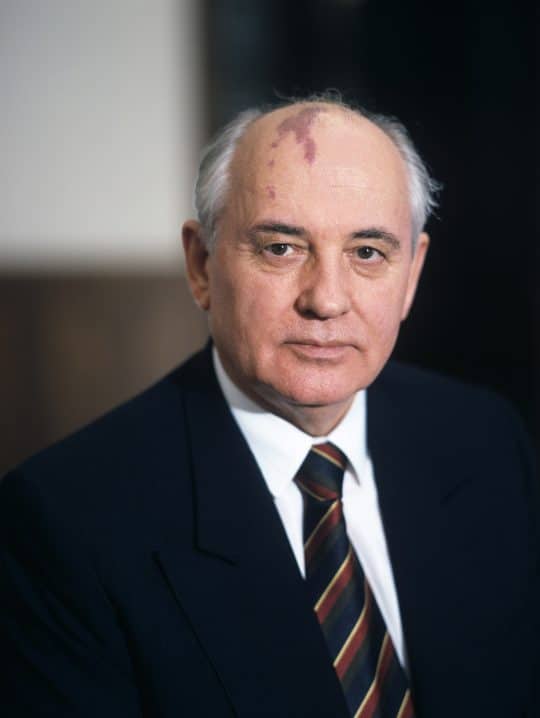
Mikhail Gorbachev
President of the Soviet Union 1990-1991
Received the World Leader Cycle award in 1996.
Mikhail Gorbachev was the leader of the Soviet Union in its late years. He was the General Secretary of the Central Committee of the Communist Party of the Soviet Union and eventually became the President of the Soviet Union. During his leadership he initiated reforms withing the party and his actions also helped end the Cold War. He received the Nobel Peace Price in 1990.
Mikhail Gorbachev was the leader of the Soviet Union in its late years. He was the General Secretary of the Central Committee of the Communist Party of the Soviet Union and eventually became the President of the Soviet Union. During his leadership he initiated reforms withing the party and his actions also helped end the Cold War. He received the Nobel Peace Price in 1990.
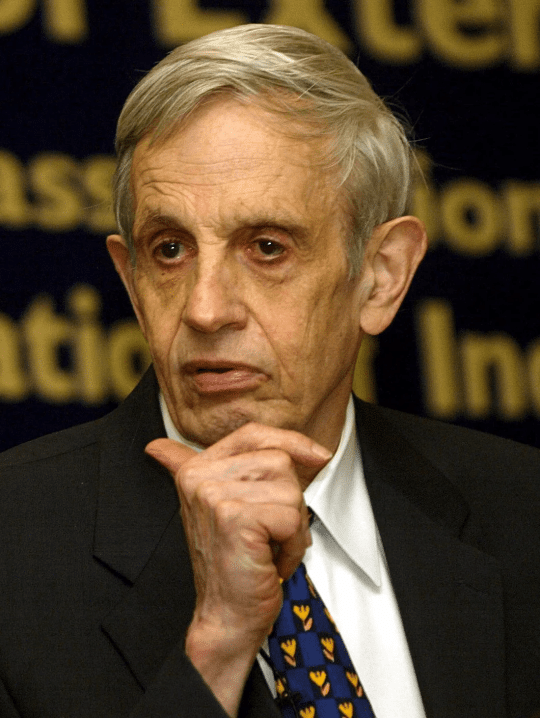
John Nash jr.
Nobel price winning mathematician and well known in the economic field
Received the World Leader Cycle Award in 1998.
Nash was born in 1928 in Bluefield, West Virginia. His theories are widely used in economics. He made a fundamental contribution to game theory, differential geometry and the study of partial differential equations. He received the nobel memorial prize in economic siences in 1994.
Nash was born in 1928 in Bluefield, West Virginia. His theories are widely used in economics. He made a fundamental contribution to game theory, differential geometry and the study of partial differential equations. He received the nobel memorial prize in economic siences in 1994.
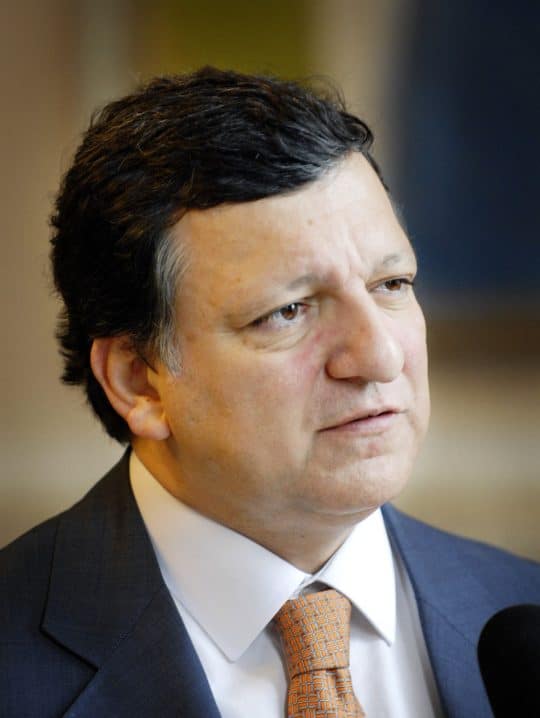
José Manuel Barroso
Chairman of the European Commission 2004-2014
Received the World Leader Cycle Award in 2006.
Mister Barroso is a Portugese policitian from the Labour party in Portugal. He studied law in Lisbon. He was prime minister of Portugal from 2002 till 2004. In 2004 he became the new chairman of the European Commission. After his work as chairman of the European Commission he became the non-executive chairman of Goldman Sachs.
Mister Barroso is a Portugese policitian from the Labour party in Portugal. He studied law in Lisbon. He was prime minister of Portugal from 2002 till 2004. In 2004 he became the new chairman of the European Commission. After his work as chairman of the European Commission he became the non-executive chairman of Goldman Sachs.
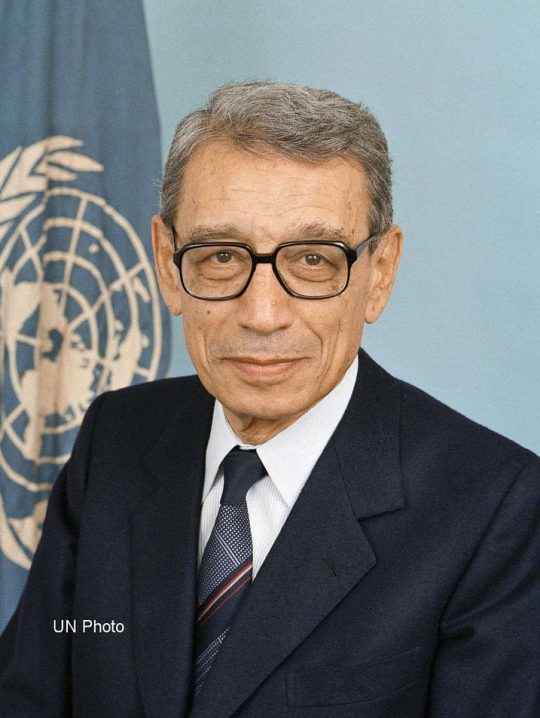
Boutros Boutros-Ghali
Secretary-General of the United Nations 1992-1997
Received the World Leader Cycle Award in 2008.
Boutrous Boutrous-Ghali served as the Egyptian Minister of Foreign Affairs from 1977 until 1991. After that, he served as the sixth Secretary-General of the United Nations from 1992 until 1996. Boutros-Ghali oversaw the UN at a time when it dealt with several world crises, including the breakup of Yugoslavia and the Rwandan Genocide.
Boutrous Boutrous-Ghali served as the Egyptian Minister of Foreign Affairs from 1977 until 1991. After that, he served as the sixth Secretary-General of the United Nations from 1992 until 1996. Boutros-Ghali oversaw the UN at a time when it dealt with several world crises, including the breakup of Yugoslavia and the Rwandan Genocide.
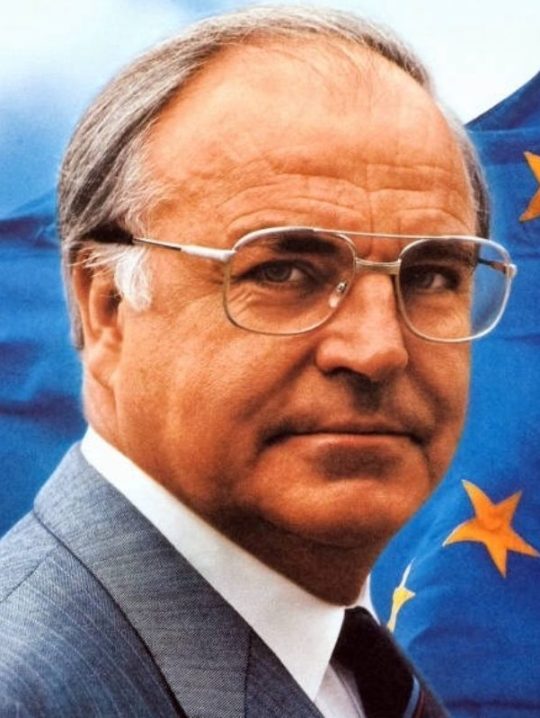
Helmut Kohl
Chancellor of Germany 1982-1998
Received the World Leader Cycle Award in 1997.
Helmut Kohl was the chancellor of Germany from 1982 to 1998. He was chairman of the CDU from 1973 to 1998. Kohl's 16-year tenure was the longest of any democratic chosen German Chancellor. Kohl oversaw the end of the Cold War and is widely regarded as the main architect of the German reunification. Kohl is considered to be the architect of the Maastricht Treaty.
Helmut Kohl was the chancellor of Germany from 1982 to 1998. He was chairman of the CDU from 1973 to 1998. Kohl's 16-year tenure was the longest of any democratic chosen German Chancellor. Kohl oversaw the end of the Cold War and is widely regarded as the main architect of the German reunification. Kohl is considered to be the architect of the Maastricht Treaty.
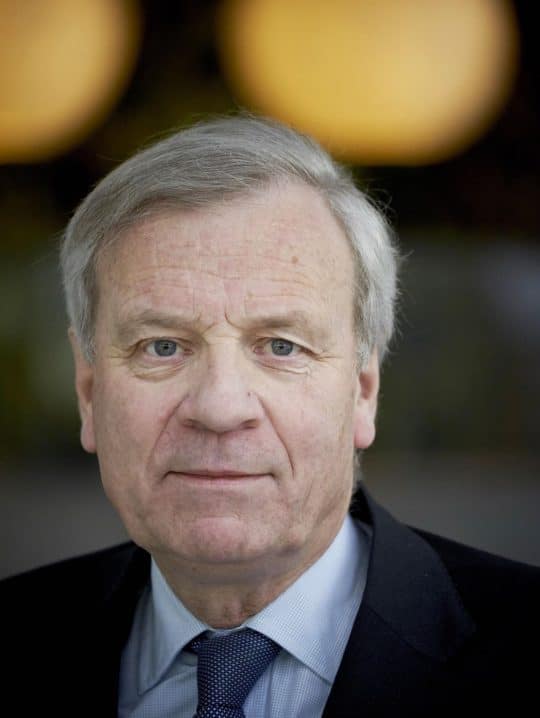
Jaap de Hoop Scheffer
Secretary General of NATO 2004 - 2009
Received the World Leader Cycle Award in 2005.
Jaap de Hoop Scheffer was a prominent member of the Dutch Christian Democratic Appeal (CDA) political party and served as the Minister of Foreign Affairs in Cabinet Balkenende I and Balkenende II. After these Dutch political roles, he was selected as the new Secretary General of NATO, where he served from 5 January 2005 until 1 August 2009.
Jaap de Hoop Scheffer was a prominent member of the Dutch Christian Democratic Appeal (CDA) political party and served as the Minister of Foreign Affairs in Cabinet Balkenende I and Balkenende II. After these Dutch political roles, he was selected as the new Secretary General of NATO, where he served from 5 January 2005 until 1 August 2009.
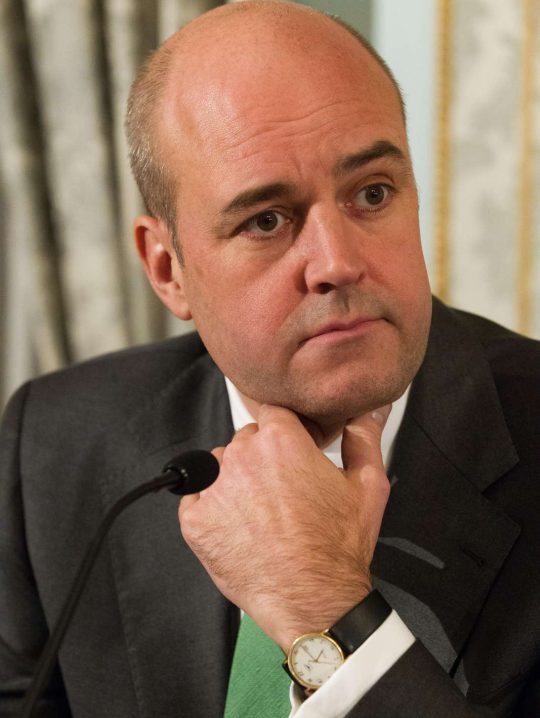
Fredrik Reinfeldt
Prime minister of Sweden 2006-2014
Received the World Leader Cycle Award in 2007.
Fredrik Reinfeldt served nearly 8 years as the prime minister of Sweden. During his time as prime minister, Sweden would emerge as one of the top countries in public finance and achieve top rankings in climate and health care. Next to being a politician, Reinfeldt also is active as an economist and lecturer.
Fredrik Reinfeldt served nearly 8 years as the prime minister of Sweden. During his time as prime minister, Sweden would emerge as one of the top countries in public finance and achieve top rankings in climate and health care. Next to being a politician, Reinfeldt also is active as an economist and lecturer.
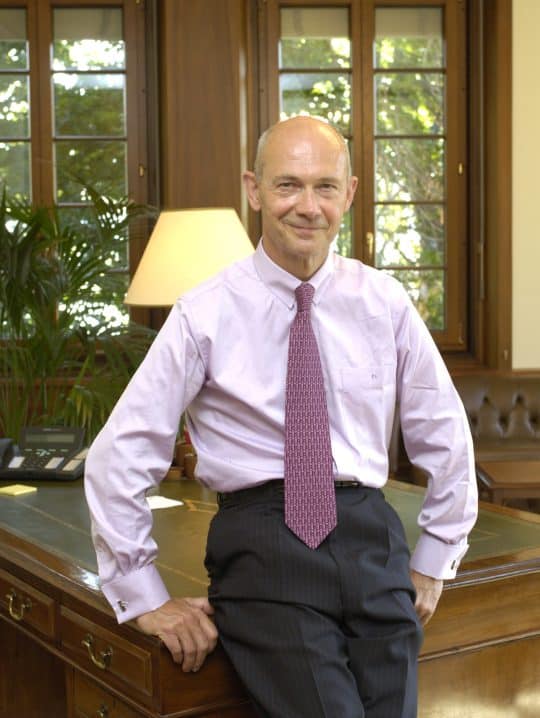
Pascal Lamy
Director General of the World Trade Organisation 2005-2013
Received the World Leader Cycle award in 2009.
Lamy was active in the European Committee before becoming the Director General of the World Trade Organisation. He was active as the European Commissioner for Trade from 1999 until 2004.
Lamy was active in the European Committee before becoming the Director General of the World Trade Organisation. He was active as the European Commissioner for Trade from 1999 until 2004.